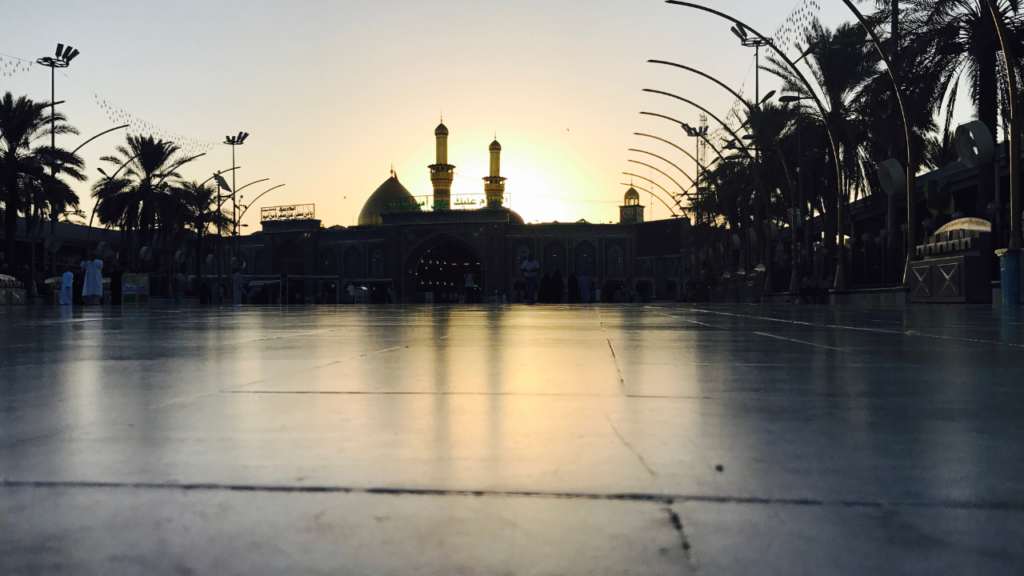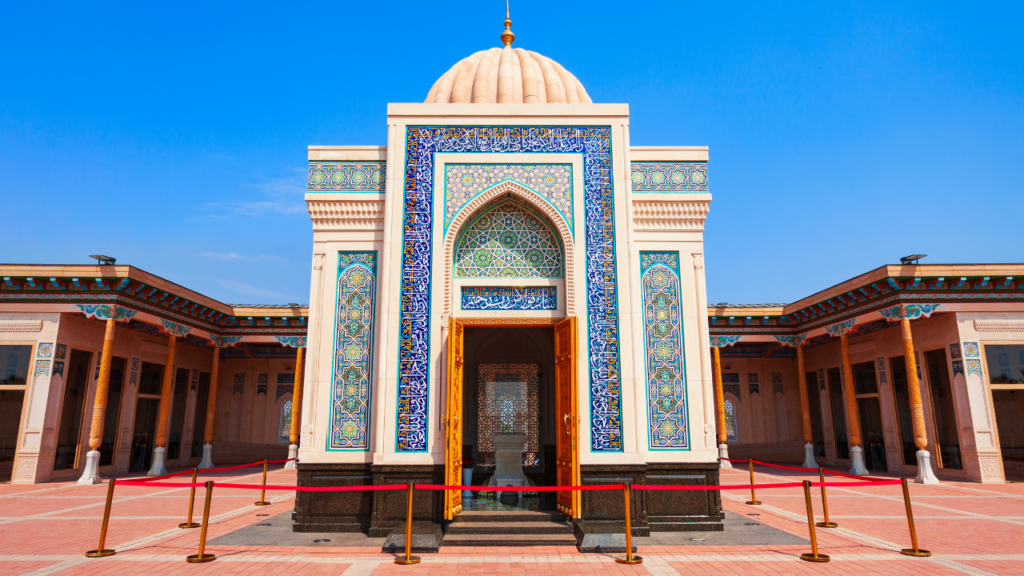Why was Hazrat Hussain martyred in Karbala?
The Enduring Legacy of Hazrat Hussain: A Tale of Principle and Sacrifice in Karbala

Why was Hazrat Hussain martyred in Karbala?
Hazrat Hussain was martyred in Karbala because he refused to pledge allegiance to the Umayyad caliph Yazid, citing concerns about Yazid’s conduct and legitimacy.

Introduction-Why was Hazrat Hussain martyred in Karbala?
The martyrdom of Hazrat Hussain ibn Ali, the grandson of Prophet Muhammad (peace be upon him), in the desolate sands of Karbala in 680 CE, remains one of the most poignant and heart-wrenching episodes in Islamic history. It is a story of unwavering principle, unyielding devotion to justice, and ultimate sacrifice that continues to resonate with Muslims worldwide, transcending the boundaries of time and culture. To understand why Hazrat Hussain was martyred in Karbala, one must delve into the socio-political context of his time and the values he stood for.
Historical Background
The period following the death of Prophet Muhammad witnessed significant turmoil within the nascent Muslim community. After the passing of the Prophet in 632 CE, a schism emerged over the rightful leadership of the Muslim ummah. While Hazrat Ali, the cousin and son-in-law of the Prophet, was deemed by some as the rightful successor, others rallied behind the first three Caliphs, Abu Bakr, Umar, and Uthman.
Hazrat Ali finally assumed the caliphate in 656 CE but faced resistance from various quarters. Amid this unrest, Hazrat Ali was assassinated in 661 CE, and his son, Hazrat Hussain, refused to pledge allegiance to the new Umayyad caliph, Yazid ibn Muawiya, due to his concerns about Yazid’s character and legitimacy.
Also check.
- Who was Abu Bakr Siddiq?
- Why did Prophet Muhammad (PUBH) marry Hazrat Khadijah?
- Why did Allah Almighty expel Hazrat Adam and Hazrat Eve from Heaven?
- Who was the first Muslim?
The Stand of Principles
Hazrat Hussain’s refusal to pledge allegiance to Yazid was not merely a matter of political opposition; it was a principled stance against a ruler whose conduct and values were seen as antithetical to the ethical and moral standards set by Islam. Hazrat Hussain, as the custodian of Islamic values, saw it as his duty to uphold justice and protect the faith. He could not, in good conscience, support a leader whose actions contradicted these principles.
The Call for Help
As Hazrat Hussain’s stand gained traction among those disillusioned with Yazid’s rule, he received appeals for assistance from the people of Kufa, who sought to restore justice and ethical governance. Encouraged by these pleas and the belief that he could make a difference, Hazrat Hussain embarked on the arduous journey to Kufa, accompanied by his family and a small band of loyal followers.
Tragedy Unfolds in Karbala
Upon reaching Karbala, Hazrat Hussain and his companions were confronted by Yazid’s forces, which vastly outnumbered them. Surrounded by a hostile army, deprived of access to water, and enduring severe hunger and thirst in the scorching desert, Hazrat Hussain and his followers faced unimaginable hardships. Yet, they refused to surrender their principles.
The Martyrdom
On the 10th of Muharram, 680 CE, known as Ashura, the battle of Karbala reached its tragic climax. Hazrat Hussain, standing alone amidst the chaos, bore witness to the martyrdom of his family and companions. His six-month-old son, Ali Zain-ul-Abidin, who had been too ill to fight, survived the massacre but was also taken captive.
The martyrdom of Hazrat Hussain symbolizes an unwavering commitment to justice, righteousness, and the preservation of Islamic values. His stand against tyranny and oppression serves as a timeless example of moral courage and self-sacrifice, inspiring generations to come.
Conclusion
The martyrdom of Hazrat Hussain in Karbala was not a mere historical event but a timeless testament to the enduring principles of justice, righteousness, and the unwavering commitment to uphold Islamic values. His sacrifice continues to inspire Muslims worldwide, serving as a reminder that one must be willing to stand up for what is right, even in the face of overwhelming adversity. Hazrat Hussain’s legacy is a beacon of hope, guiding humanity towards the path of moral integrity and selfless sacrifice for the greater good.

FAQS about Why was Hazrat Hussain martyred in Karbala?
Why was Hazrat Hussain martyred in Karbala?
Hazrat Hussain was martyred in Karbala because he refused to pledge allegiance to the Umayyad caliph Yazid, citing concerns about Yazid’s conduct and legitimacy.
What were the political factors that led to Hazrat Hussain’s martyrdom?
Hazrat Hussain’s refusal to support Yazid was driven by his opposition to what he perceived as a tyrannical and morally corrupt rule.
How did Hazrat Hussain’s stand align with Islamic principles?
Hazrat Hussain’s stand in Karbala was a principled one, rooted in his commitment to uphold justice, righteousness, and the ethical values of Islam.
What was the significance of the Battle of Karbala in Islamic history?
The Battle of Karbala is a significant event in Islamic history, symbolizing the struggle for justice and the willingness to sacrifice for one’s principles.
Were there attempts at reconciliation before the battle?
Yes, there were attempts at peaceful resolution, with emissaries sent to Yazid’s camp, but they were met with hostility and rejection.
How many people were with Hazrat Hussain in Karbala?
Hazrat Hussain had a small group of loyal followers and family members with him in Karbala, numbering around 72 individuals.
Why is the martyrdom of Hazrat Hussain commemorated annually during Muharram?
Muslims commemorate the martyrdom of Hazrat Hussain during Muharram to remember his sacrifice and to draw lessons about standing up for justice and principles.
Did Hazrat Hussain’s son, Ali Zain-ul-Abidin, survive the battle?
Yes, Hazrat Hussain’s son, Ali Zain-ul-Abidin, survived the battle and went on to become the fourth Imam in Shia Islam.
How did the events at Karbala impact the early Islamic community?
The events at Karbala had a profound impact on the early Islamic community, leading to increased awareness of moral and ethical obligations and inspiring resistance against oppressive rulers.
What is the broader significance of Hazrat Hussain’s martyrdom beyond Islam?
Hazrat Hussain’s martyrdom is admired for its universal message of standing up against tyranny, oppression, and injustice, making it a source of inspiration for people of various faiths and backgrounds.






